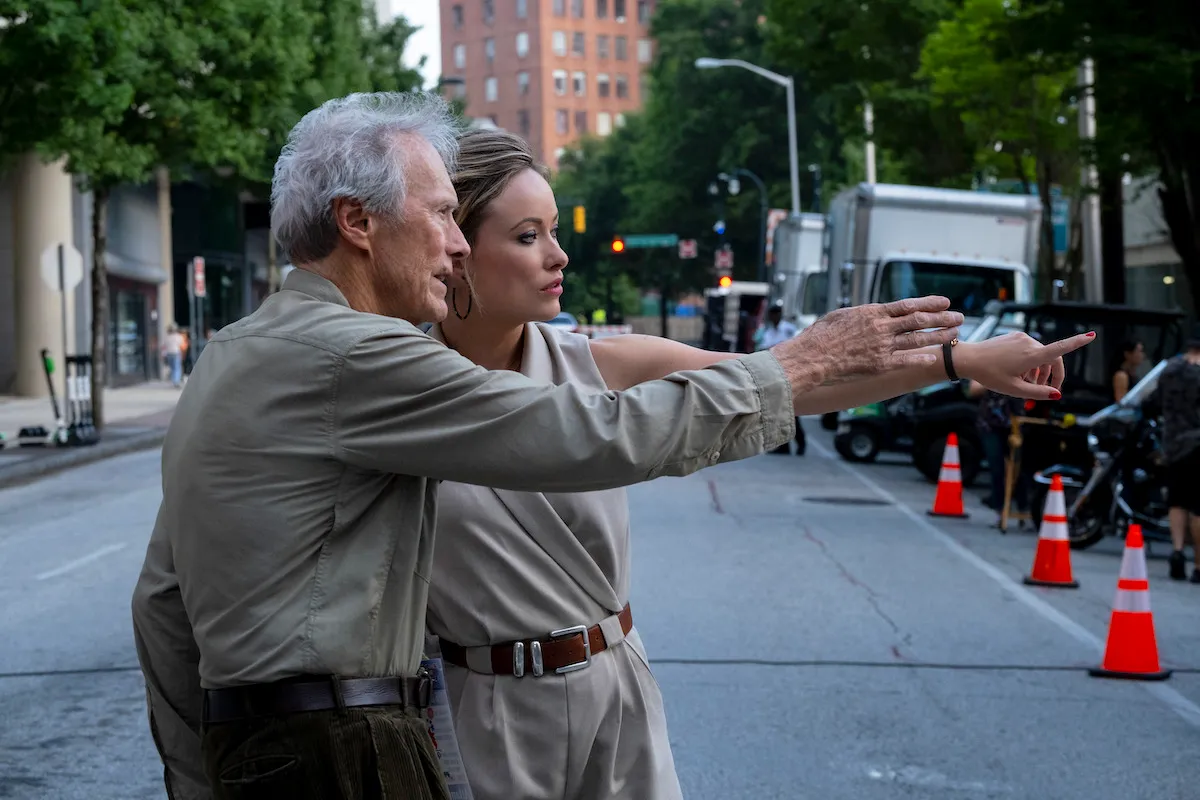Full disclosure: I have not yet seen Clint Eastwood’s Richard Jewell. I have, however, seen more than enough other films and TV shows that insist on having female reporter characters sleep with their sources. From Gilmore Girls to Iron Man to Trainwreck to House of Cards, the trope is so ubiquitous, it’s rare to find a fictional female journalist for whom sex isn’t treated as a legitimate part of their job. So it’s disappointing when filmmakers insist on foisting this trope on real-life journalists, too.
The Atlanta Journal-Constitution is asking Warner Bros. to release a statement and add a “prominent disclaimer” to Richard Jewell making it clear that “some events were imagined for dramatic purposes.” They’re specifically upset with the portrayal of the late journalist Kathy Scruggs, as played by Olivia Wilde. In the film, it’s implied that the character has sex with an FBI agent (Jon Hamm) to get a story. The paper, as well as Scruggs’ family and friends, maintain that never happened.
Richard Jewell is the story of the 1996 bombing at the Atlanta Olympics. The FBI blamed Jewell, a local security guard, for the bombing, and though they were ultimately wrong, the press reported on their suspicions. Jewell was the lead suspect for a few months and vilified in the public eye until the actual bomber was caught. (The actual person responsible, by the way, was Eric Rudolph, who was motivated by anti-abortion and anti-LGBTQ hatred, though I don’t expect Clint Eastwood to address that.)
The depiction of Scruggs has been getting criticism since the film premiered at AFI Fest. Olivia Wilde (whose parents are both journalists) has been defending her character and doing a pretty terrible job of it. She’s called it a “basic misunderstanding of feminism” to insist women be “sexless” and “one-dimensional,” which is not at all what anyone is suggesting for her character.
We have more options than just “sexlessness” and being unable to imagine a female journalist doing her job without trading sex for tips. In what world are those the only two possibilities for professional women? And why are writers and directors so incapable of thinking a woman could develop relationships with sources and get major stories without sex being involved?
This trope is garbage. If the journalist isn’t seducing her source to get a story out of him, she’s abandoning her whole original story so she can have sex or develop a relationship with the man she’s supposed to be investigating/reporting. Both scenarios are terrible because they’re rooted in a belief that sex and/or romance are either an intrinsic part of a woman’s professional life or more important than it.
This dumb, dumb, dumb cliche that I hate (reporter, esp if female, flirts heavily with and/or sleeps with source) is still way too common in TV and film. It’s annoyed the shit out of me for decades. https://t.co/Prm4cSziBT
— Mo Ryan (@moryan) December 4, 2019
Hollywood’s portrayal of female reporters as flirting for scoops (or romantic interests for those they cover) is lazy, tired, insulting, inaccurate—& contributes to the outrageously frequent harassment my female colleagues face. https://t.co/LIJCps02eq
— Bryn Stole (@brynstole) December 4, 2019
Scruggs died in 2001 but Wilde has said that she “spoke to her colleagues, her friends, I spoke to the authors of the recent book about the event, (‘The Suspect’), I spoke to (screenwriter) Billy Ray, I spoke to (Vanity Fair reporter) Marie Brenner, I spoke to everybody I could to get a sense of who this woman was.” Scruggs’ brother and multiple colleagues and longtime friends, as well as Kevin G. Riley, editor of the Journal-Constitution, say that’s not true, though.
“The film literally makes things up and adds to misunderstandings about how serious news organizations work,” said Riley. “It’s ironic that the film commits the same sins that it accuses the media of committing.”
Dramatic license is one thing–no one expects this sort of movie to be a documentary. But tropes like this are lazy and damaging to the ways in which we view women in an already male-dominated industry. It’s also totally respectful to one very real woman in particular.
(via Variety, image: Claire Folger/Warner Bros.)
Want more stories like this? Become a subscriber and support the site!
—The Mary Sue has a strict comment policy that forbids, but is not limited to, personal insults toward anyone, hate speech, and trolling.—










Published: Dec 10, 2019 01:18 pm